Ich treffe die 65-jährige Eve im Jewish Community Center in Manhattan. Eve ist die Tochter von Paul und Ann, die beide bis 1938 in Wien gelebt hatten und von dort aus nach New York emigriert waren. Sie übergibt mir ein achtseitiges Dokument, das ihr Vater über seine Flucht aus Wien geschrieben hat. Eve nennt es eine "Abenteuergeschichte mit Hindernissen". Die Zitate in diesem Blogbeitrag stammen aus diesem Dokument.
Eine Welt bricht zusammen
Eves Vater Paul war Arzt; ihre Mutter, Ann, Juristin. Beide konnten keine entsprechende Arbeit im Wien der 30er-Jahre finden. Paul arbeitete als Vertretung für einen kranken Arzt.
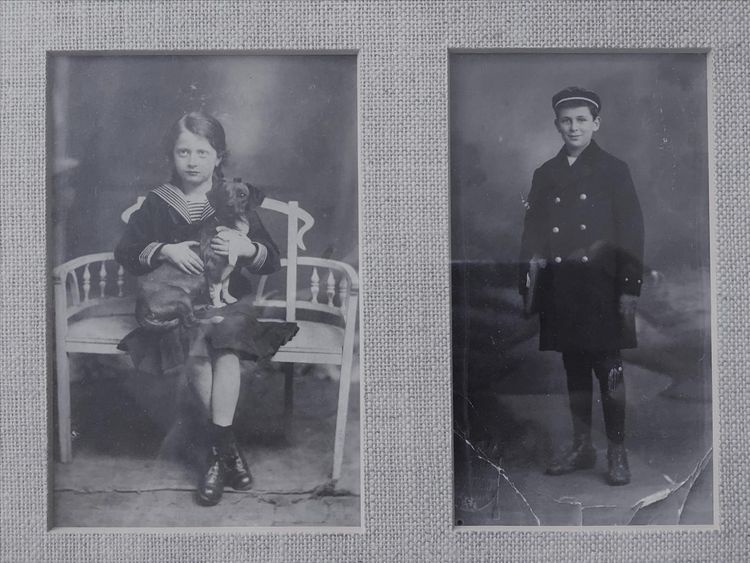
Pauls Welt brach zusammen, als er sich von einem Patienten, dem er gerade das Leben gerettet hatte, hintergangen und verraten fühlte. Er war empört und wütend und es wurde ihm in seiner Enttäuschung klar, dass er und Ann Wien so schnell wie möglich verlassen mussten.
"The situation in Austria became worse. The chancellor was called to Hitler on February 12, 1938 and we felt that the Nazis were standing in front of our door. In the second week of February I treated a female patient, whom I knew to be an illegal Nazi. She said to me: Last night we had a meeting and your name was mentioned. They said A. is a nice guy, but he is a Jew and will have to be punished. After some prodding I found out that the person who made this remark was a patient of mine, who should have been a very grateful patient, because I saved his life, when he was sick with pneumonia. My reaction to this episode was, that I told Ann: ‘If this story is true, then the whole world breaks down for me.’ - Little did I know, how prophetic I was, because about two weeks later my world did break down."
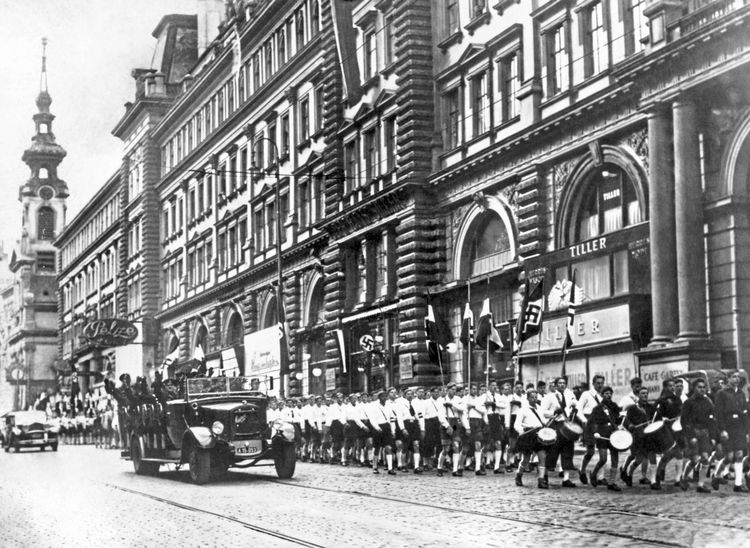
Der Anschluss
Nach dem Anschluss Österreichs an Deutschland im März 1938 wurde Paul die Dringlichkeit einer Flucht bewusst:
"The former illegal Nazis became very legal, many people were arrested and it soon became very clear to us, that we had to leave, if we wanted to survive and not be thrown into concentration camps ... Where should we go, and how do we get passports?"
Die Situation in Wien verschlechterte sich zunehmend und die Nazis genossen es, Juden leiden zu sehen:
"Walking on the street was not safe. Nazis rounded up Jews on the street and took them to the police station to clean windows or toilets there, or made them scrub the streets. ... Once they surrounded old people in a park and drove them, with their clothes on, into a lake. This was great fun for the Nazis, – a major annoyance for the old Jewish people, who had to walk home in their wet clothes –, but nothing in comparison with everything that happened later on – the gas chambers."
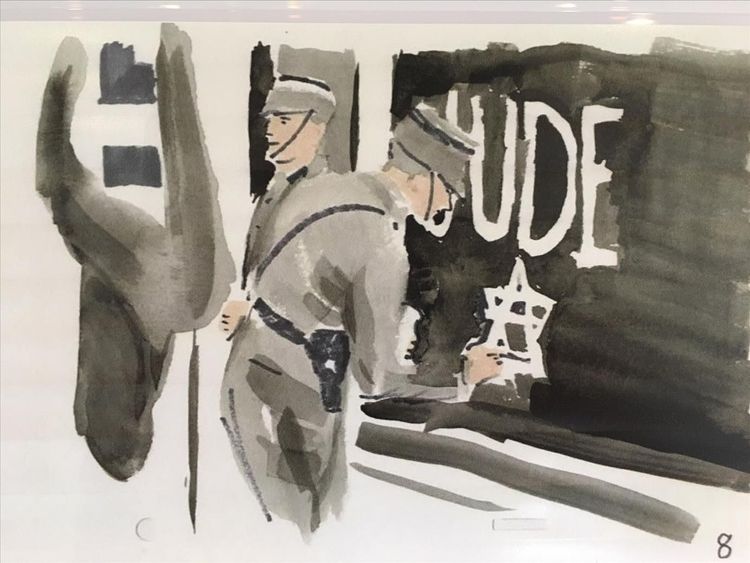
Flucht – eine Abenteuergeschichte mit Hindernissen
Paul beschreibt in großem Detail seine Reise über das ehemalige Jugoslawien und Brüssel, wo ein Teil der Familie lebte:
"Father and I arrived in Zagreb in the morning. As we walked from the train station, we entered a park and sat down on a bench. This I will never forget, because since months signs were up in the parks of Vienna: 'Jews are not allowed to sit down'."
Es war schwierig, alle erforderlichen Dokumente zusammenzutragen, um in die USA auswandern zu können, aber Paul und Ann schafften es. Am 19. August 1938 bestiegen sie ein Schiff, überquerten zehn Tage lang den Atlantik und begannen ihr neues Leben in New York.
"On Saturday, August 19, we left Europe and crossed the Atlantic in ten days – that’s how long it took on a slow boat. We arrived in Hoboken on August 29 with $ 20 in our pockets ... we found a furnished room and our life began anew – in New York City. Ann supported us as a masseuse, and I started to study, first English and then I took all the medical examinations and got my license."
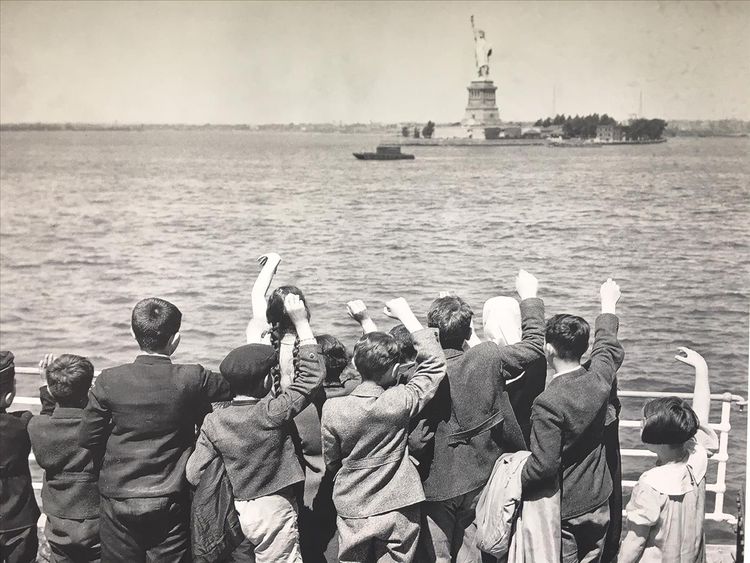
"And we shall never discriminate against a fellow man because of his creed or his race"
Paul verlor fast seine ganze Familie in Auschwitz:
"My parents, with two aunts, one uncle, one cousin were taken to Auschwitz and gassed. Ann’s brother Emil was arrested by the Gestapo in Lyons and also killed. Quite a record for one family, whose only 'crime' it was, that they were of Jewish descent. This shall never be forgotten."
In seinem Bericht bedankt sich Paul bei denen, die ihm und Ann bei der Flucht geholfen hatten: einem Priester, der ihnen half, ihre Religion zu ändern; denjenigen, die bei der Beschaffung der Pässe und Visa geholfen hatten; und den jüdischen Organisation in Jugoslawien, Italien und den USA, die tausende Flüchtlinge unterstützten.
"'Nothing' happened to Ann and myself, compared to others. We experienced no cruelties, no physical harm, no incarcerations. But we could not have survived without the help of many other people, like the priest, who sold us the conversion papers, the travel agent who gave me the visa stamps for Ann’s passport, the people who gave me my passport in Austria. The person who gave us the affidavit. These too, shall never be forgotten. I also want to mention with deep gratitude the tremendous work the Jewish organizations performed in Yugoslavia, Italy, and the USA, for all the thousands of refugees."
Pauls Dokument endet mit den folgenden Worten: "AND WE SHALL NEVER DISCRIMINATE AGAINST A FELLOW MAN BECAUSE OF HIS CREED OR HIS RACE."
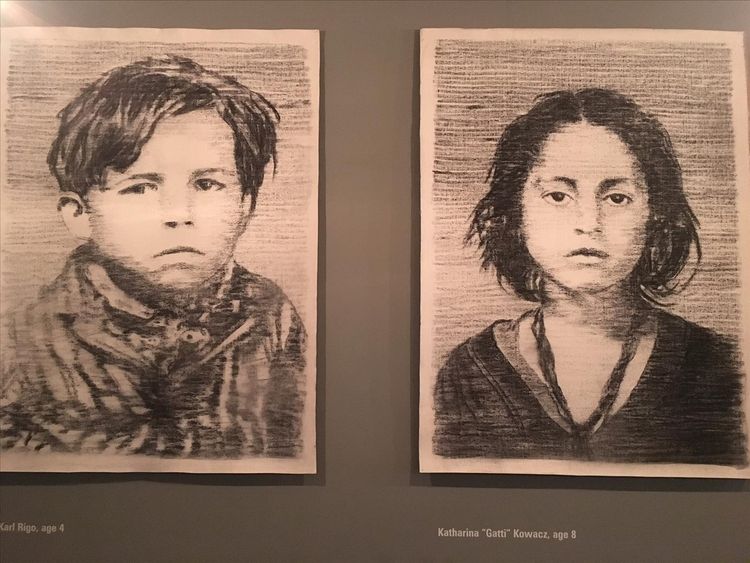
Eves Eltern ließen sich in New York nieder. Ihr soziales Umfeld bestand hauptsächlich aus österreichischen Flüchtlingen, die sie häufig zu Essen einluden. Eve erinnert sich daran, dass Gespräche meistens auf Deutsch geführt wurden.
Anspruch auf die österreichische Staatsbürgerschaft
Vor zehn Jahren wurden Eve und ihre Kinder davon benachrichtigt, dass sie als die Kinder von Flüchtlingen Anspruch auf die österreichische Staatsbürgerschaft hätten. Mit gemischten und sehr widersprüchlichen Gefühlen wurde Eve vor drei Jahren österreichische Staatsbürgerin und auch ihre Kinder bewarben sich. Es sind schwierige und langwierige bürokratische Prozesse, die viele Fragen aufwerfen. Eve sagt:
"We understand they are not interested to have people come over to receive social benefits and welfare. It feels they are making it as hard as possible for you ... It feels a bit passive-aggressive towards us. You want them, you don’t want them. And then what is it about us that you do not want? This raises a lot of questions ..."
Als Eve ihre Tochter zum österreichischen Konsulat in New York begleitete, um deren österreichischen Staatsbürgerschaftsnachweis in Empfang zu nehmen, wurden sie ins Büro des Konsuls begleitet, der sie mit Sekt begrüßte und sich für die Schwierigkeiten im Prozess bei ihnen entschuldigte.
Demnächst hier im Blog: Aaron (40) und seine Suche nach der Wiener Vergangenheit und Identität.(Stella Schuhmacher, 2.7.2018)